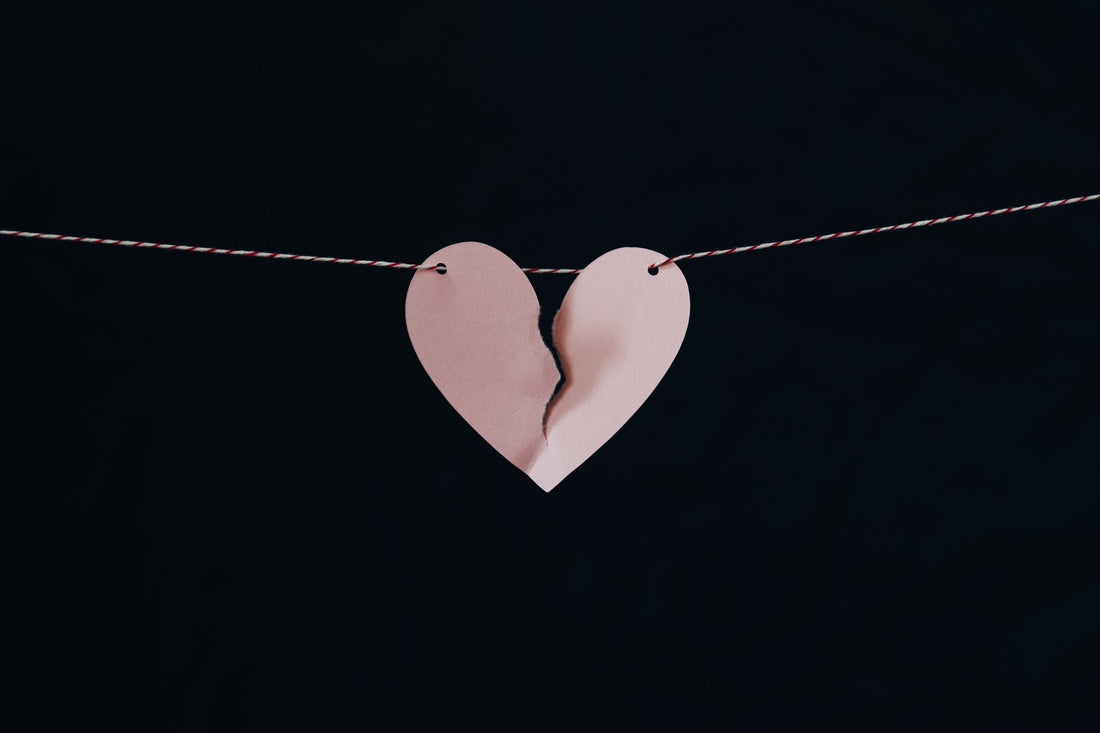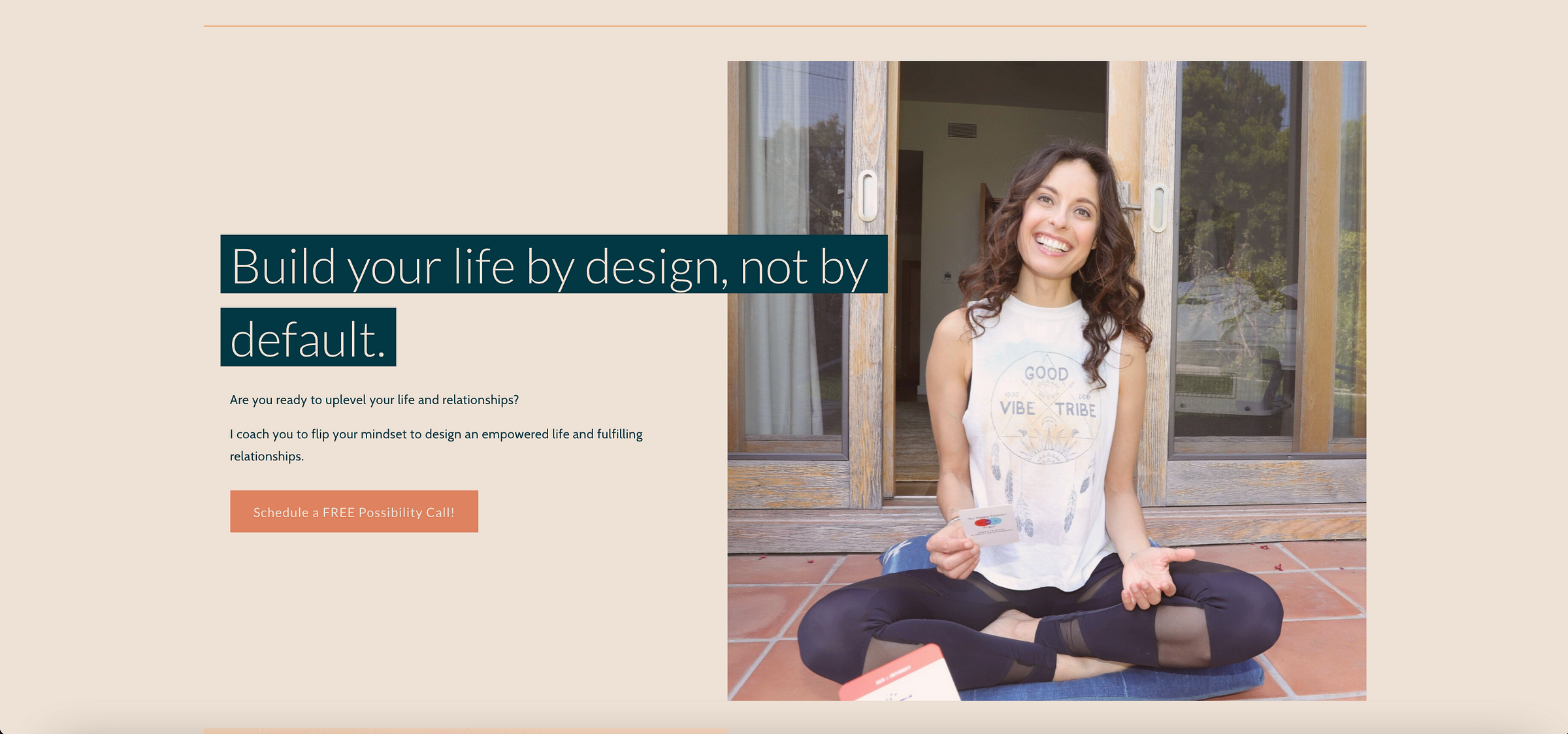
Relationships End. Here's How to Navigate Life Post-Break-Up
Share
Questions to Ask Yourself to Break the Pattern
We don’t start relationships with the intention of them ending.
And, obviously not all relationships are destined to end. But good riddance to the relationships that aren’t serving our evolution, because the most divine relationships, the most sacred ones, take you to the edge of your comfort zone, blow open your triggers and smear salve all over your familial traumas and wounds so that you might become a more healed, a more whole version of yourself.
So, when we find ourselves at the end; when one or both in the relationship decide: “This is no longer right,” the short answer to the question “I should just move on and be done with it, right?” is “Right.”
It is in your best interest to start your grieving process and to start self-reflection.
The Grieving Process
The freshness of a breakup is not easy and letting go (in any context) is a difficult process, but grieving a relationship is no different than grieving any other loss.
The best thing to do during any loss is to be in it. Be in the sadness, be in the anger, be in all the feels. Allow yourself the time to process the pain you’re feeling and grieve the relationship; to grieve the loss of this person’s presence in your day-to-day. Allow yourself to feel that, don’t bypass it.Mourn the loss of the connection, of the expectations you had for their presence in your life, of the fantasy.
As you do this, start to notice whether what you’re mourning is more heavily skewed to the qualities of the person or to the fantasy and possibility of what would have been, could have been. The latter would signal that perhaps you were in the relationship for unhealthy reasons in the first place. These get to be worked out before you start a new relationship. More on that shortly.
As you reflect on the relationship, your thoughts may drive to all the things that you *could have* done, *would have* done, *should have* done to be “better”, “worthy”, “worth it,” “enough”.
Stop that. Stop that cold in its tracks! Because, this is a form of shaming yourself and as you go through the healing and grieving process, shame will only set you back. Shame will only cause inflated suffering. And what you can recognize is that it’s not about you. It’s about the other person. What we want at any given moment can change. People change and grow. Sometimes they #growtogether and sometimes not.
Self-Reflection and “Woundology”

Once you have mourned the relationship’s end, and moved through 5 stages of grief, begin self-reflection and start to investigate and heal ancestral and familial wounds.
Here are some questions to for self-reflection post-break-up:
1. What drew you to the relationship?
2. What did you excel in?
3. What did you struggle with?
4. What did you love about that partner?
5. What didn’t you love about that partner?
6. If you could re-do everything and have that partner come back into your life exactly as they were, would you?
7. If not, what would you revise about the type of person you’re calling in and the type of relationship you want to create?
8. How did this relationship fit the pattern(s) of previous relationships? Were there qualities that reminded you of other partners or perhaps an important familial relationship (parental / adult figure, sibling, etc.)
Do some self-reflection on the qualities your former partner had that mirror your own self-worth, self-love, self-acceptance or match your childhood and relational wounds, up until now.
Tend to those, as a matter of high priority.
Tend to those wounds that are operating in your subconscious. Untended, these wounds will draw in relationship patterns that repeat, and repeat, over and over, until we hit a breaking point so painful that we decide at that moment, that something must change.
I lead a workshop on these very clearings and you can sign up to my newsletter (scroll to the bottom to sign up) where we announce workshops if that’s of interest.
This would also be an opportunity to explore your “woundology” — wound = trauma, unhealthy patterns + “ology” = study of / story. What story would you give your woundedness? Is it “nothing I did growing up was ever good enough.”? Maybe it’s “My parents were mentally / emotionally / physically / sexually abusive and I felt small / worthless / rejected constantly.” Whatever it is, know that we all do one of two things in relationships (because relationship is designed to catalyze our growth and healing) —
- Mirror — we will call in a partner that mirrors our own behaviors and shares a similar wound OR embodies the behaviors we wish we had in an effort to “compensate for our perceived deficiencies.”
- Match — we will call in a partner who matches a family dynamic that is familiar. As humans with human brains, our default is to find safety and as ironic as it may seem, often what’s perceived as “safe” is what’s known, which can also be toxic. Someone may have a bi-polar, neurotic, alcoholic parent and that comes with a set of “knowns” that make it more predictable and easier to navigate than an environment where there aren’t any “stressors” of that kind.
Start to notice, and then deconstruct, your patterns and their roots. It won’t be easy, but it will be very worth it!
In doing so, you’re resourcing up so that you don’t hold on to Hope that could prevent you from going out in the world, being your amazing self and attracting in new relationships that can serve you in this new chapter of your life.
If you’re wanting to go deeper on your personal “Wound-ology”, book a free Possibility Call with me to see how we might tend to those wounds and re-program your patterns in relationship.
Individuation and RecalibrationPost-break-up, there’s a level of individuation that returns, as you learn again what it’s like to be your own person outside of the relationship. For the first time in a while, you get to be clear on what you like to do when you’re not in collaboration with another person on a regular basis about plans for the weekend or the night. And if you’ve allowed yourself to grieve, engaged in self-reflection, and explored your patterns, then you’ve also got a renewed and fresh sense of self! It’s exciting to get to “Do you” again, without any limitations, and with new insights about yourself.
The investment into yourself post-break-up will support your future efforts to find someone who wants to be in a *conscious relationship* that’s defined by mutual movement and mutual growth as individuals within the container of relationship. And I think that’s where you get to focus your energy — finding that person.
That’s an exciting and fun journey and a very fulfilling place to end up.
And, I wish that for you,
💕🚀
Joce

